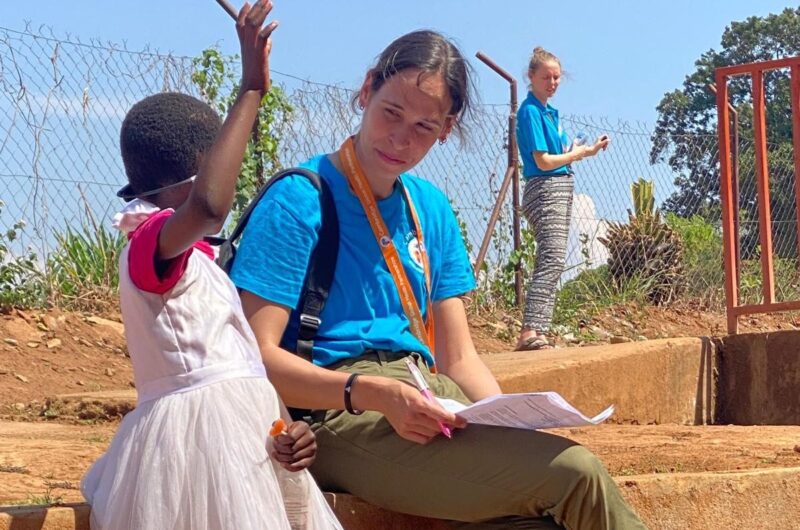Natalia Glibbery is an ENT Registrar and East of England Global Health Fellow. As part of her fellowship she travelled to Malawi with a multidisciplinary team of healthcare staff to deliver ear and hearing care to remote and rural communities. Here she reflects on the impact of the visit and the value of the experience to her NHS practice.
“I find it fascinating to learn about different cultures and healthcare systems, and I believe this is especially important for healthcare professionals. It helps us better understand patients from diverse backgrounds, leading to more empathetic and effective care. Engaging in global health not only allows us to make a positive impact but also provides the opportunity to learn from different healthcare environments. By gaining insights into how various systems address similar challenges that we might face in the NHS, we can improve our ability to adapt, innovate and improve our practice.
The project
I’m involved in the Malawi Hearing Project, which aims to improve access to Ear and Hearing Care (EHC) for populations in rural Malawi; offer affordable hearing equipment (including novel bone conduction headsets), and explore the barriers that the local population faces in accessing Ear and Hearing Care (EHC).
The prevalence of disabling hearing loss in Malawi is 11.5%, with a significant burden of middle ear disease and preventable hearing impairment. Access to ENT services remains extremely limited, with only five ENT specialists and two audiologists serving the entire country.
The Malawi Hearing Project is unique in its efforts to bridge this gap by improving access to Ear and Hearing Care care in rural areas and providing affordable hearing devices to those in need. What also sets this initiative apart is the exceptional collaboration of a multidisciplinary team, including ENT surgeons, paediatricians, paediatric nurses, physiotherapists, audiologists, social workers and local volunteers, all working together to drive the project forward.
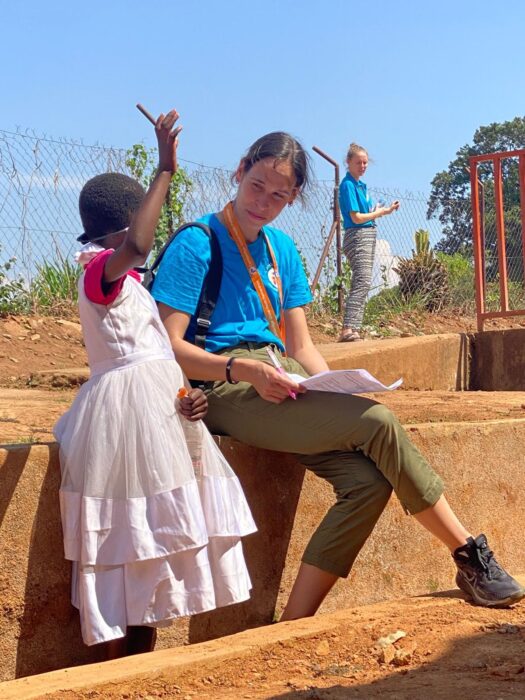
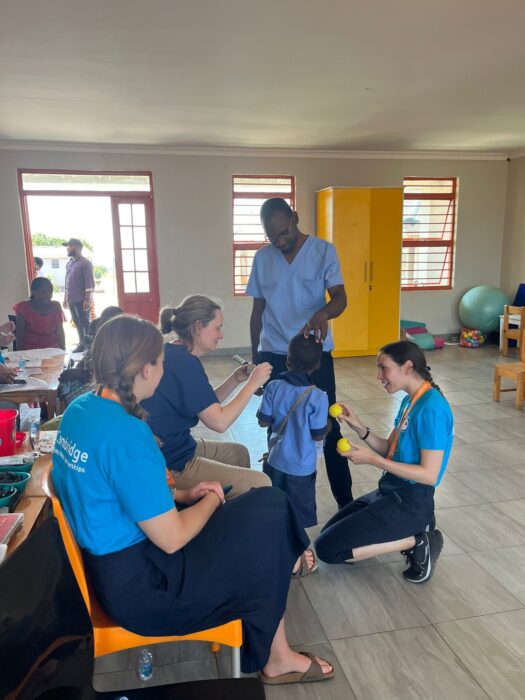
The visit
In November 2024, I joined this multidisciplinary team on a week-long visit to Malawi, to set-up four ear camps in key locations across Central and Southern Malawi and provide ear and hearing care to children and adults in rural communities. This included ear examination, wax removal, antibiotic treatment, hearing assessments and hearing aids.
My key responsibilities included examining patients with ear complaints, diagnosing underlying pathologies and determining the need for further investigations (such as audiograms) or appropriate treatments (including wax removal and prescribing antibiotics). Additionally, I ensured thorough documentation and record-keeping of all patients seen, including their diagnosis and required treatment.
Challenges and rewards
The most challenging aspect of the experience was working with limited resources in a new healthcare setting. This required making practical decisions based on the available treatment options and equipment, which was different from the approach I’m used to in the NHS. Despite these challenges, we were able to adapt, prioritise care effectively, and achieve positive outcomes for our patients. The most rewarding aspect of the experience was seeing the immediate impact of our work on patients’ quality of life, particularly when we were able to restore hearing or relieve discomfort through simple yet effective treatments. The gratitude expressed by patients and their families was incredibly fulfilling.
Collaborating with an exceptional multidisciplinary team and local healthcare professionals was invaluable, enabling us to treat 801 patients over the course of a week. The experience also fostered two-way learning and partnership, strengthening both our practice and the local healthcare system.
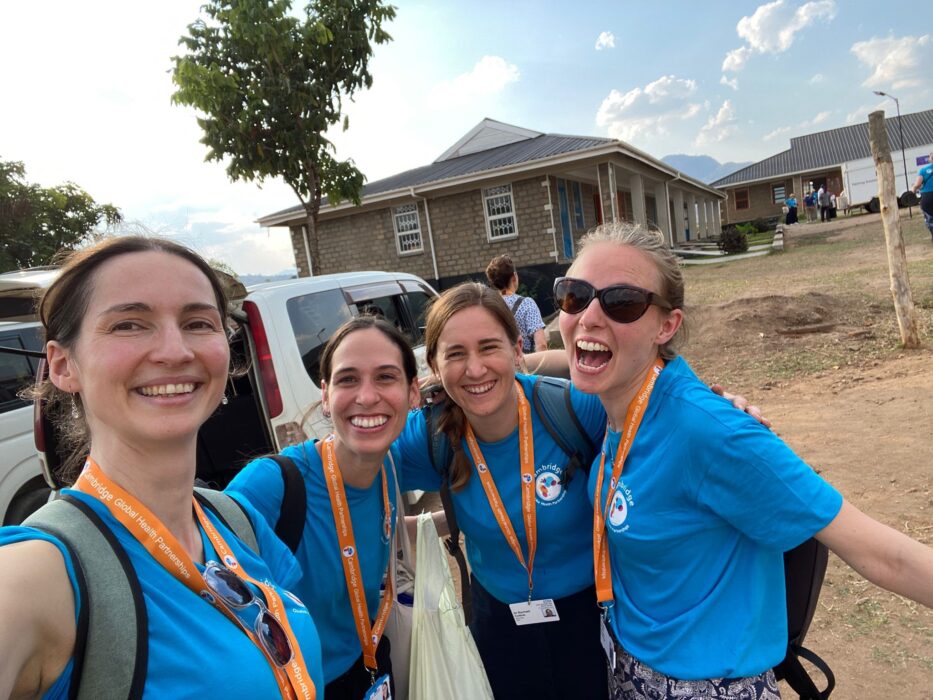
One remarkable teacher cycled for four hours with 11 children to reach our ear camp. Three of the children received bone conduction headsets, and six had earwax removed. This extraordinary effort highlights the determination of people in rural areas, who, despite limited access to ENT services, go to great lengths to receive the care they need. It’s deeply rewarding to know that we were able to address their ear and hearing issues, which can have a lasting impact on their education and daily lives.
Personal and professional development
This experience has greatly contributed to my personal growth by encouraging me to explore different cultures and adapt to new environments. It enhanced my resourcefulness and problem-solving skills, improving my ability to make practical decisions. Working with a diverse team and learning from local healthcare professionals also expanded my cultural awareness and strengthened my communication skills.
Professionally, the experience exposed me to a high burden of ear pathology that I would not have routinely seen in the NHS. It provided valuable insight into different cultures and healthcare environments, deepening my understanding of how to better serve patients from diverse backgrounds. Additionally, it enhanced my ability to work in varied healthcare settings, improving my flexibility and adaptability in delivering care.
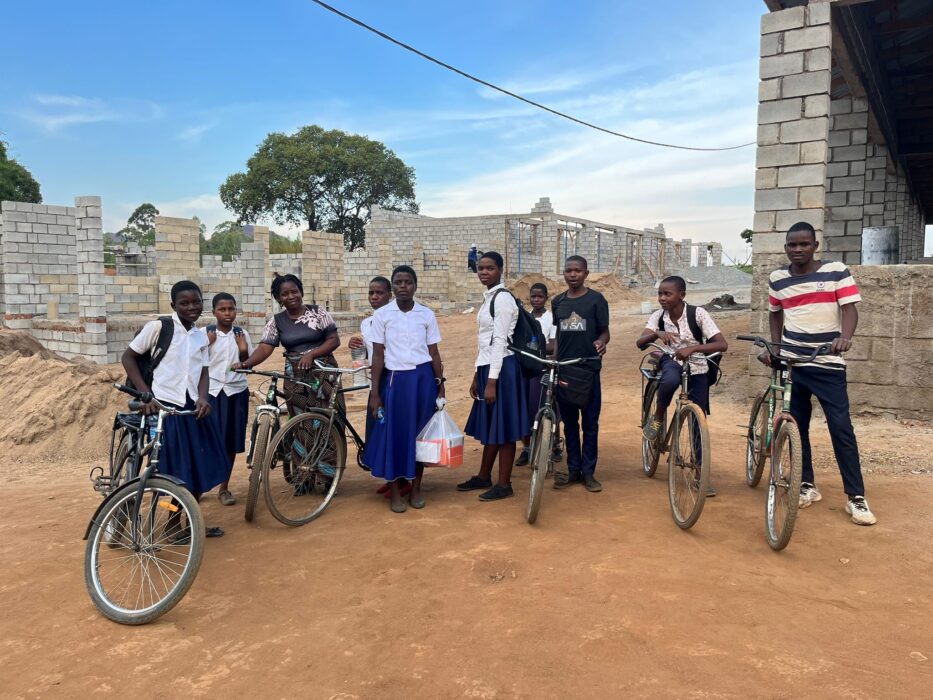
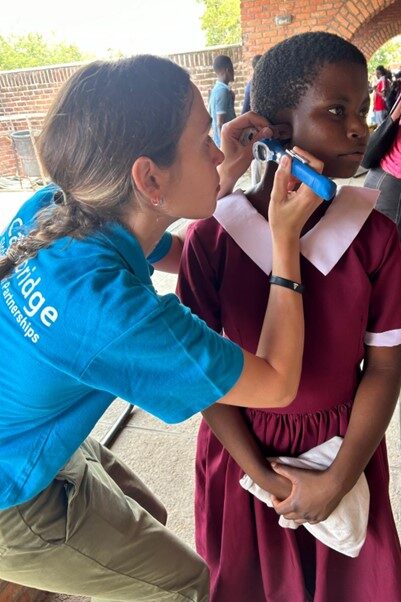
A lasting impact
For healthcare staff, the Malawi hearing project provides valuable exposure to new techniques, equipment, and approaches, enhancing their skills and knowledge in diagnosing and treating ear-related conditions.
For patients, the visit provided access to ear and hearing care as well as essential treatments and hearing devices. This will lead to improvements in their quality of life, education, employment opportunities, and social interactions. Additionally, medical records will be maintained at Queen Elizabeth Hospital in Blantyre to ensure patients can be followed up and continue to receive the necessary care.
Back in the UK, my experience is positively influencing healthcare because I have a greater understanding of healthcare delivery, particularly in resource-limited settings. Observing the challenges faced in Malawi and the need for practical, cost-effective solutions has provided valuable insights into how we can be more innovative and adaptable in delivering care—insights that can be applied to NHS practices.
A key takeaway from this experience is the importance of reducing waste and reusing equipment. In Malawi, resourcefulness was critical, and we often reused tools, ensuring they were properly maintained for continued use. This focus on sustainability could be beneficial in the NHS, where efficient resource management and waste reduction are increasingly important.
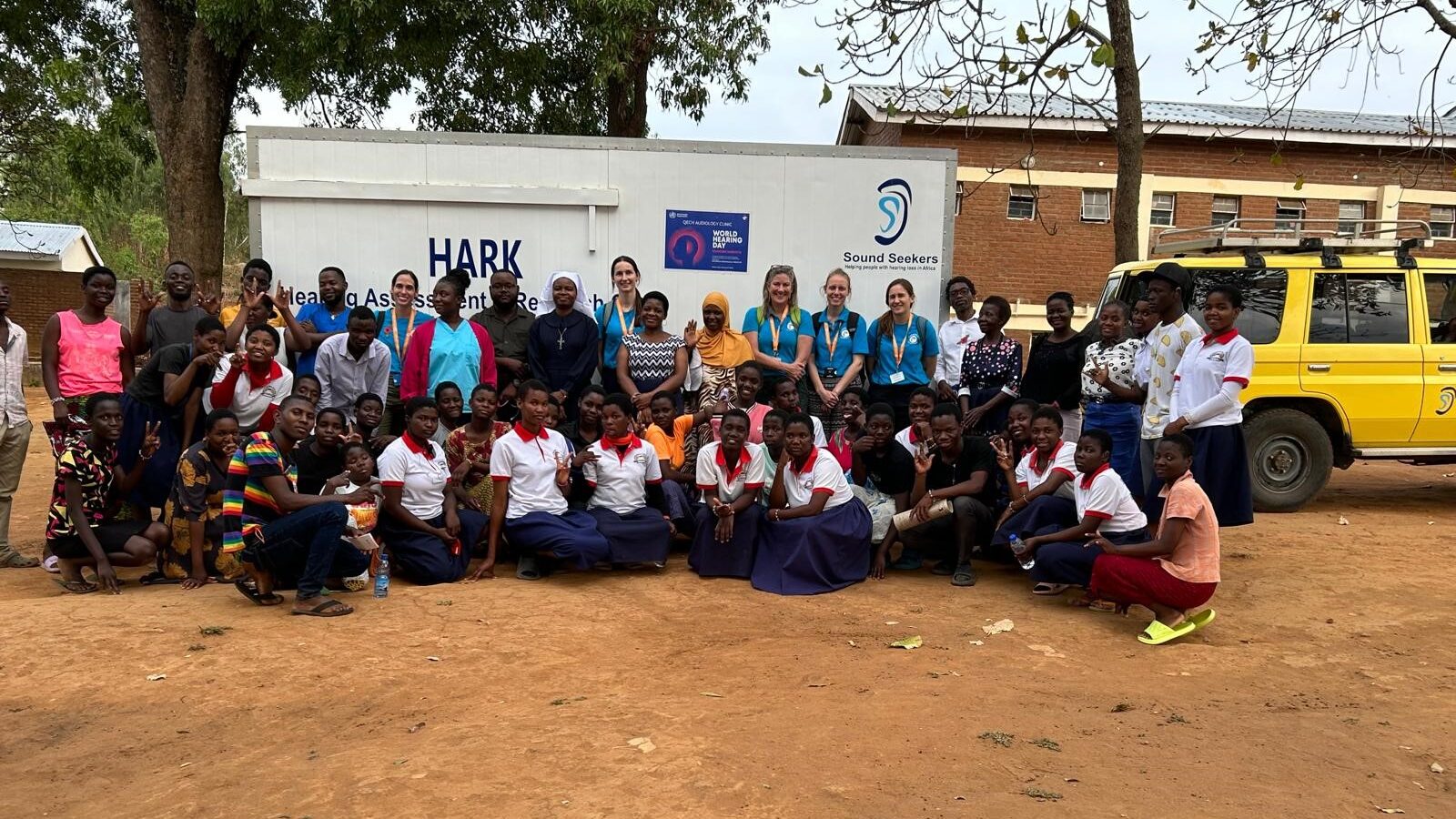
Find out more about the Malawi Hearing Project, the East of England Global Health Fellowship scheme or contact us at info@cghp.org.uk
Return to blogs

